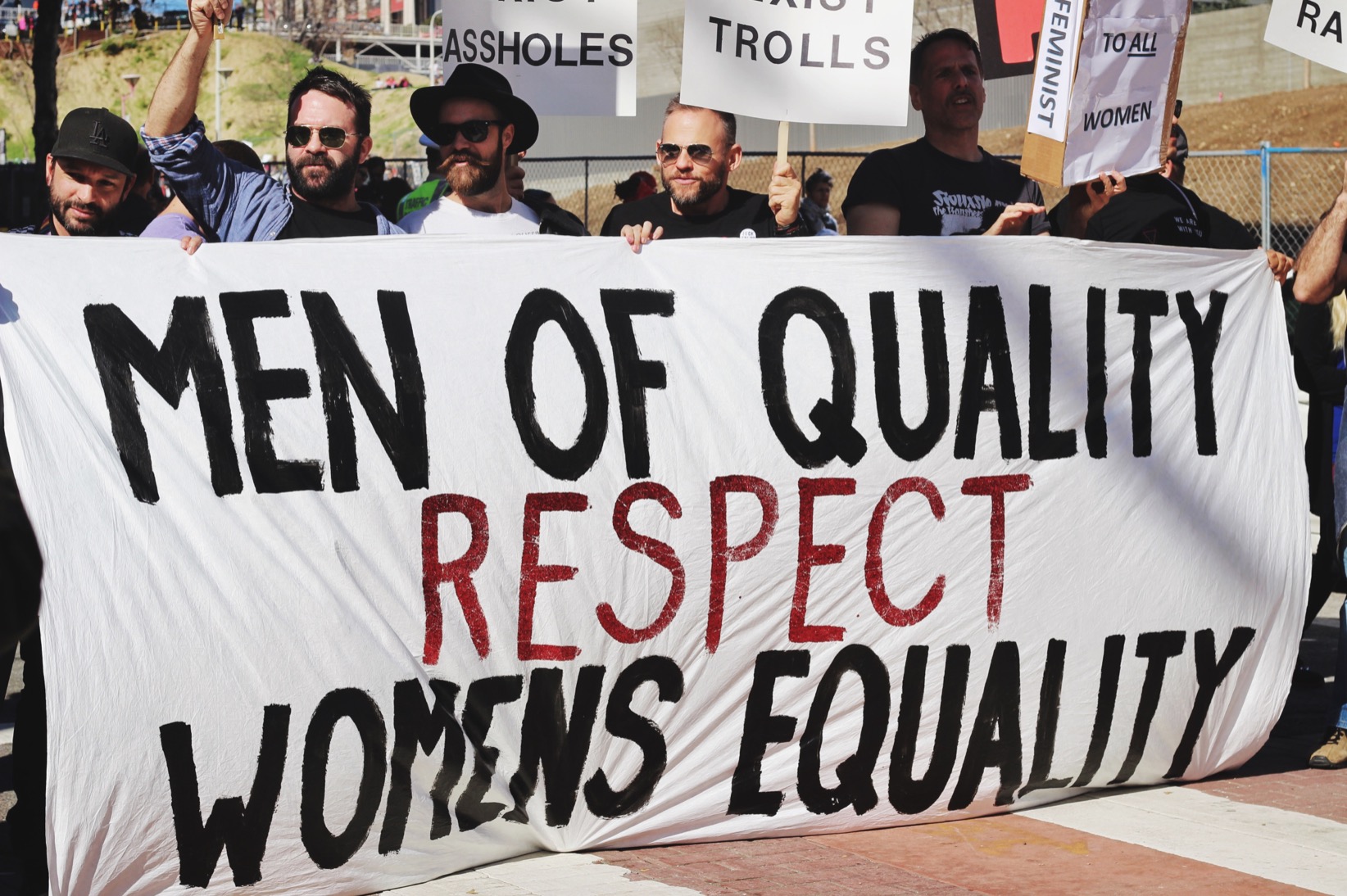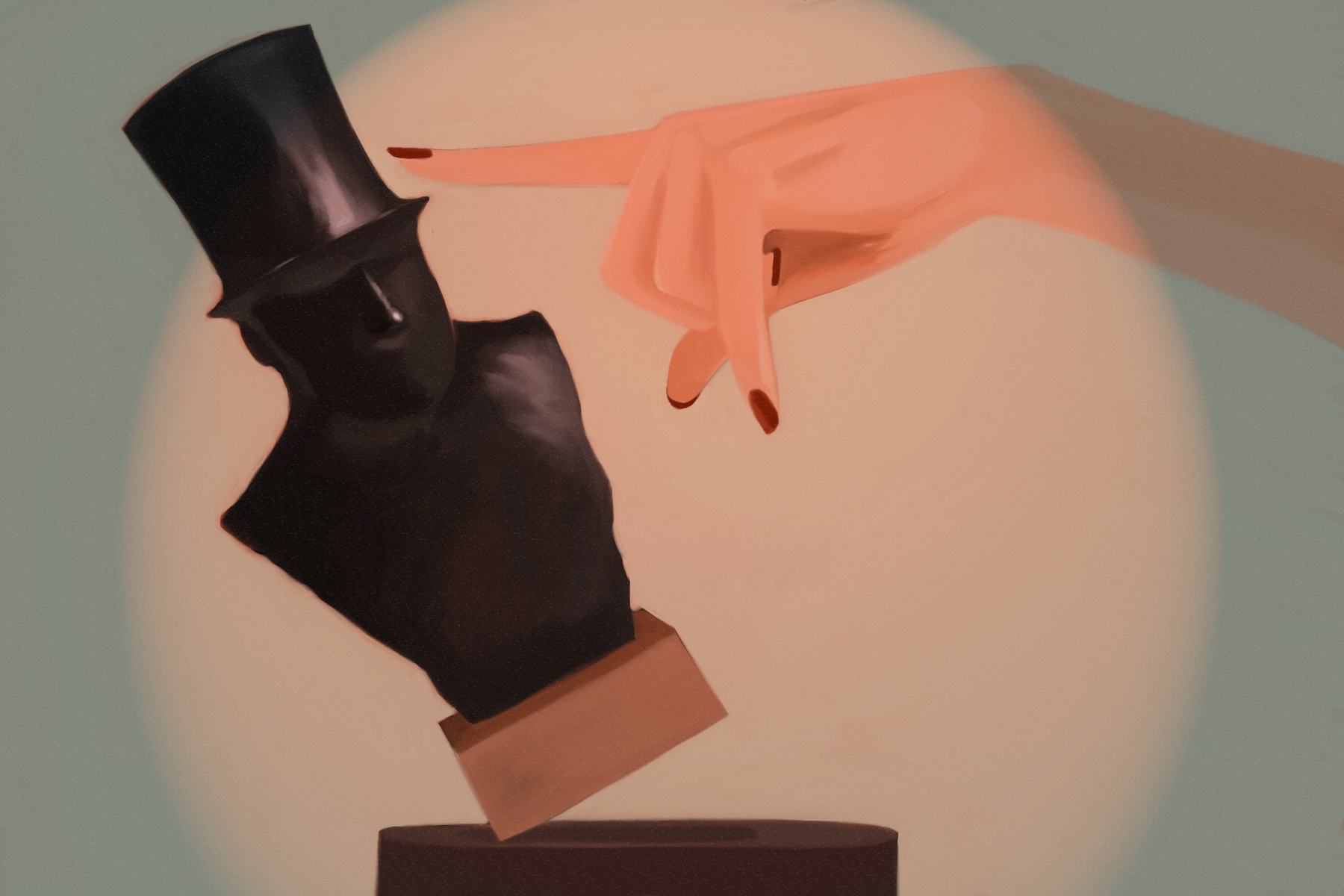Over the course of the past year, women all over the world have been galvanized by the onset of the #MeToo movement and have become leaders of the global fight against abuse of power and sexual misconduct.
Although it began with victims speaking up about their experiences, the public conversation evolved into one that tackled how women are treated not just in the professional sphere but in any social situation. For the most part, the public has focused its attention on the women standing on the front lines of #MeToo. But beyond the superficial side of the movement, men behind the scenes are leading the critical redefining of masculinity.
The fact is that #MeToo tackles a problem that is the direct result of male action. Of course, it’s not just women who are victims of misconduct, but the frustration that started the movement in the first place is directed at a culture that has encouraged a trend of toxic masculinity without caring about the potential consequences.
Not only has it negatively affected women who have been at the receiving end of its effects, but it has also left generations of men to wonder if they possibly did anything that could now be considered misconduct. As important as it is for women to be a part of changing the culture surrounding harassment and assault, the change cannot be comprehensive unless the social interpretation of what it means to be a man is broadened.
Despite what some television pundits might say about it, toxic masculinity isn’t some sort of liberal propaganda, and its constraining nature can be harmful to men who don’t feel like they can conform to it. It demands that they be aggressive alphas and avoid expressing emotions that might make them seem vulnerable to others. At the same time, it dictates that they be sexually aggressive as a way to express dominance and power over others.
Some might like to tell you that that’s how men are by nature, but it’s just not true. Just like women are socialized from childhood to act in a ladylike manner, men are told from the time that they’re young that there is a right and wrong way to act. But when they’re not inclined to fit that characterization, the results can be damaging to their personal wellbeing.
University of Texas to treat masculinity as a ‘mental health’ issue pic.twitter.com/BtZdfclfMG
— FOX & friends (@foxandfriends) April 29, 2018
The problem is that these expectations tend to blur the line between behaviors that are normal and those that are deviant. In the specific context of sexual misconduct, it tells men at an early age that their needs and desires outweigh the need for a woman’s consent. It even implies in some ways that a lack of consent means nothing if you’re aggressive enough. That sort of attitude has been a poison that has given good men a pass to do bad things and think little of it, giving the excuse of “boys will be boys.” It treats misconduct as an inevitability of interaction between men and women, and it suggests that women should just learn to deal with it.
That’s exactly what #MeToo is trying to fix. Along with talk of female empowerment and active mobilization, men are taking a stand to figure out what led society to this point and what could be done going forward. For most people, what comes to mind is individual reflection on past actions. The stories of #MeToo have caused a lot of men to consider their own attitudes and actions that could have unintentionally made a woman feel uncomfortable. Some have even come forward about behavior that, while maybe acceptable several generations ago, would be considered sexual assault today.
There’s a new sense of fear among men who are afraid of what could happen to them if what they see as an innocent action is interpreted as misconduct. After all, if they’ve always been told that certain behaviors are tolerable, how are they supposed to know where the line is? It seems like a difficult concept to understand, but it starts with defining masculinity as respect, patience and empathy. To show generations of men what that means is to help them to understand what the road looks like for them going forward.

But, the change has not been without its critics. Some people feel as though the concept of “toxic masculinity” goes a step too far to demonize the natural tendencies of men and treat masculinity as the enemy. In many ways, that’s a valid concern. There are some feminists who say that men are inherently despicable and can’t be changed. But it’s safe to say that most people understand that masculinity in and of itself is not the problem. You can define it however you like, and that’s what sets it apart from what most men are told. Society’s toxic definition of it is just one thin interpretation, and the more that people understand that, the quicker the culture can improve.
The work that #MeToo is doing among men extends far beyond the grown generations trying to figure out what the movement means for their own masculine identity. It’s posing questions to everyone, men and women alike, about how to better the way that young men are raised. While some might say that it’s a matter of emphasizing what not to do, young boys need to be given examples and role models of what they should aspire to become. Perhaps the most beneficial part of the public nature of accusations against heavyweights in Hollywood and Washington is that it starts a conversation with parents and children about acceptable behavior, consent and respect. Maybe it won’t solve the problem altogether, but it’s certainly a start.
#MeToo has had an immeasurable impact on the culture and conversation surrounding sexual misconduct and abuse of power. But to say that it’s just a women’s movement is ignoring the importance of men as a part of the conversation. The problems that #MeToo is addressing are ones that will take decades to fix, and if there is going to be real progress, there needs to be a universal realization that everyone has skin in the game.

















